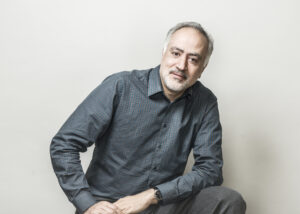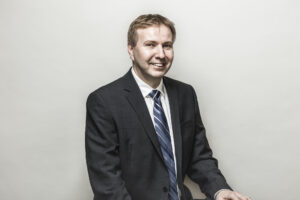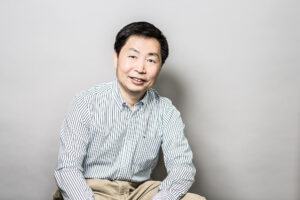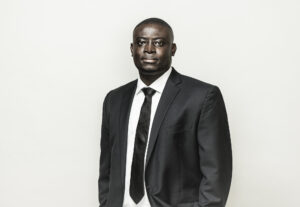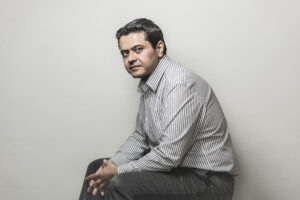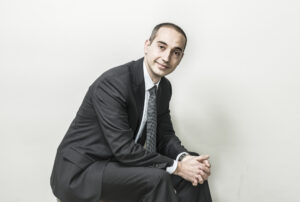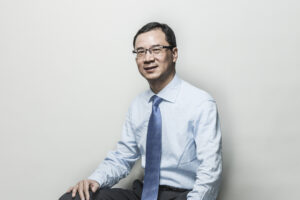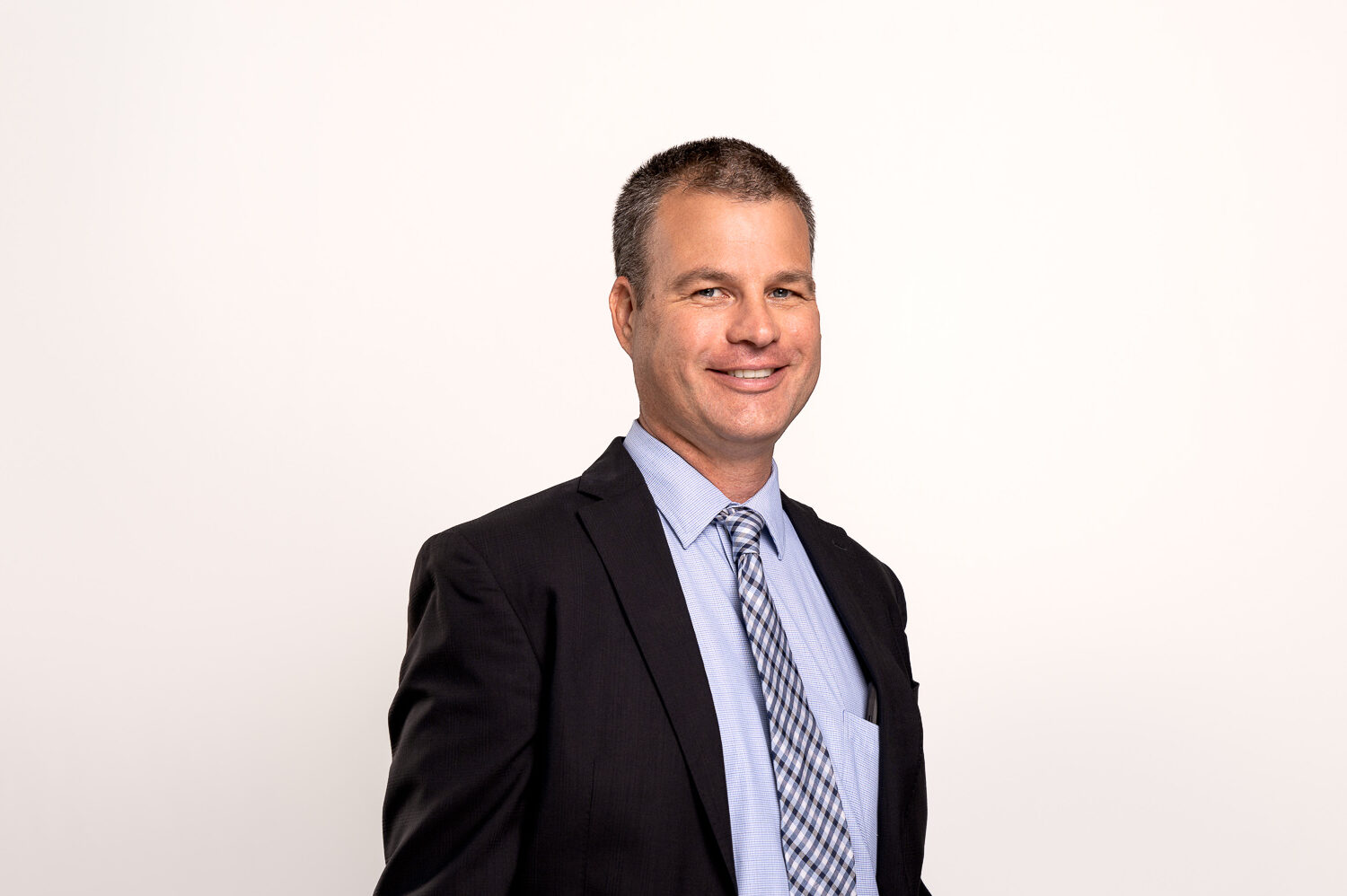-
Aerospace
Alidad Amirfazli, PhD, PEng, FCSME, FEIC
Professor
Research Areas: Thermofluid, Fluid Mechanics, Wetting & Capillarity, Icing, coating
Laboratory: Surface Engineering and Instrumentation Lab (SEiL)
Email: alidad2@yorku.caProf. Amirfazli’s group combines fluid mechanics and heat transfer concepts with physiochemical and thermodynamic principles to tackle many complex problems seen in aerospace, energy, and materials sectors. The group has produced exciting results in wetting behaviour of surfaces, drop adhesion and shedding, drop impact, icing, direct laser patterning of self assembled monolayers and super-hydrophobic surfaces. The work is well recognized internationally; active collaborations with various research groups around the world allows many students to spent time in top laboratories or interacted with researchers we host annually in our lab from Germany, Italy, Spain, China, France, Belgium, UK and Switzerland.
Alex Czekanski, P.Eng, PhD, MBA
University Professor and NSERC/Quanser Chair in Engineering Design for Innovation
Research Areas: Computational solid mechanics, Experimental solid mechanics, Additive Manufacturing, Bioprinting, Soft and super-soft Materials, Design Engineering Education
Integrated Design and Engineering Analysis (IDEA Lab): www.idea-lab.ca
Email: alex.czekanski@lassonde.yorku.caThe focus of IDEA Lab (Integrated Design and Engineering Analysis) is on computational and experimental solid mechanics, multi-scale modelling, shape and topology optimization, additive manufacturing, bioprinting and design educational engineering research. See Dr. Czekanski’s personal website for the list of his publications and other research outputs (yorku.ca/alexcz)

Ronald Hanson, PhD
Associate Professor
Research Areas: Experimental fluid dynamics, turbulence, turbulent boundary layer, transition, flow control
Laboratory: https://rhanson.lab.yorku.ca/
Email: hansonre@yorku.caProf. Hanson’s research takes a primarily experimental approach to the study of flow physics. He established the Fluid Mechanics and Flow Control Research Laboratory with a cornerstone closed loop wind tunnel and towing tank facilities. His group is focused on wall-bounded and separated flow phenomena with relevance to aerospace and sport-based applications. This builds from parallel focus on flow dynamics and instabilities as precursor to their control, which forms a close nexus with development of technology (active/passive) to enable favorable alteration of boundary layers, wakes and turbulence. Another branch of his research relates to aerodynamic characteristics of airborne pollutant.
George Zhu, PhD, FEIC, AFAIAA, FCSME, FASME, SMIEEE, CAE
Tier 1 York Research Chair in Space Technology
Laboratory: yorku.ca/gzhu
Email Address: gzhu@yorku.ca
Phone Number: (416) 736-2100 x 77729Dr. George Zhu is the Director of the Space Engineering Design Laboratory at the Lassonde School of Engineering, Department of Mechanical Engineering. His research interests touch on a number of topics including the dynamics and control of tethered spacecraft systems, electrodynamic tether propulsion and space debris removal, space robotics and advanced spacecraft materials.
Read More -
Applied Mechanics
Alex Czekanski, P.Eng, PhD, MBA
University Professor and NSERC/Quanser Chair in Engineering Design for Innovation
Research Areas: Computational solid mechanics, Experimental solid mechanics, Additive Manufacturing, Bioprinting, Soft and super-soft Materials, Design Engineering Education
Integrated Design and Engineering Analysis (IDEA Lab): www.idea-lab.ca
Email: alex.czekanski@lassonde.yorku.caThe focus of IDEA Lab (Integrated Design and Engineering Analysis) is on computational and experimental solid mechanics, multi-scale modelling, shape and topology optimization, additive manufacturing, bioprinting and design educational engineering research. See Dr. Czekanski’s personal website for the list of his publications and other research outputs (yorku.ca/alexcz)
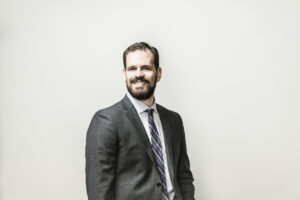
Garrett Melenka, PhD
Associate Professor, Graduate Program Director
Research Areas: Braided Composites, Composite Materials, Digital Image Correlation, Micro-computed tomography, Additive Manufacturing
Laboratory: http://gmelenka.info.yorku.ca/
Email: gmelenka@yorku.ca
Phone: 416-736-2100 (extension 44189)Our research team focuses on the design, manufacture, mathematical modeling and experimental analysis of advanced composite materials and braided composite structures. In addition, Our teams’ experience in composite materials has translated to the experimental analysis and modeling of additive manufactured structures. Our team specializes in the experimental analysis of composite structures using measurement techniques such as three-dimensional digital image correlation (3D DIC) and micro-computed tomography (µCT).
Read More -
Biomedical Engineering
Alex Czekanski, P.Eng, PhD, MBA
University Professor and NSERC/Quanser Chair in Engineering Design for Innovation
Research Areas: Computational solid mechanics, Experimental solid mechanics, Additive Manufacturing, Bioprinting, Soft and super-soft Materials, Design Engineering Education
Integrated Design and Engineering Analysis (IDEA Lab): www.idea-lab.ca
Email: alex.czekanski@lassonde.yorku.caThe focus of IDEA Lab (Integrated Design and Engineering Analysis) is on computational and experimental solid mechanics, multi-scale modelling, shape and topology optimization, additive manufacturing, bioprinting and design educational engineering research. See Dr. Czekanski’s personal website for the list of his publications and other research outputs (yorku.ca/alexcz)
Solomon Boakye-Yiadom,PhD, P.Eng
Associate Professor
Laboratory: Advanced Materials Processing, Characterization and Computational Modelling
Email: sboakyey@yorku.caPouya Rezai, PhD, P.Eng
Associate Professor & Chair
Research Areas: Microfluidics, Lab on a Chip, Point of Care Diagnostics, Point of Need Detection, Health and Safety Monitoring
Laboratory: Advanced Center for Micro-fluidic Technology and Engineering (ACµTE)
Email: prezai@yorku.ca
Phone: +1-4167362100-44703Dr. Pouya Rezai’s interdisciplinary research interest is in multi-phase flows within microfluidic and Lab-on-Chip (LoC) devices. At a fundamental level, it aims to understand the interactions between biological and physical nano- and micro-particles and various fluids in biomimetic microsystems. The generated knowledge and expertise are used at the applied level to develop point-of-care and LoC devices for disease studies and drug discovery, and point-of-need sensors for health-and-safety monitoring applications such as pathogen and pollutant detection in air, water, food, and/or human body fluids. See Dr. Rezai’s personal website for the list of his publications and other research outputs.
Terry Sachlos, PhD
Associate Professor
Laboratory: Stem Cell Engineering
Email: terry.sachlos@lassonde.yorku.ca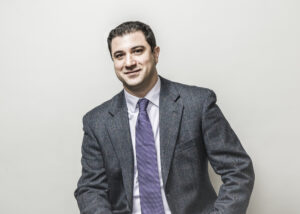
Nima Tabatabaei, PhD
Associate Professor
Laboratory: Hybrid Biomedical Optics Lab
Email: nima.tabatabaei@lassonde.yorku.caThe focus of HBO Lab is on the design and development of thermal and optical imaging technologies and devices with applications in medical diagnosis and screening. Optics-based medical devices are of particular interest to us due to their intrinsic ability of revealing malignancies in their early stages. The early diagnosis of diseases improves the effectiveness of treatments, promotes prevention rather than medical intervention, and is probably the only approach for us to win the war on cancer.
One of the major challenges in optical imaging of endogenous tissue contrast is the poor specificity due to background signals from the healthy tissue. The HBO Lab’s vision is to overcome this shortcoming by separating excitation and detection channels (i.e, Hybrid methods). In this scenario, crosstalk between the channels takes place by energy conversion at malignant sites that are sensitive to the excitation.
Read More -
Design Engineering
Alex Czekanski, P.Eng, PhD, MBA
University Professor and NSERC/Quanser Chair in Engineering Design for Innovation
Research Areas: Computational solid mechanics, Experimental solid mechanics, Additive Manufacturing, Bioprinting, Soft and super-soft Materials, Design Engineering Education
Integrated Design and Engineering Analysis (IDEA Lab): www.idea-lab.ca
Email: alex.czekanski@lassonde.yorku.caThe focus of IDEA Lab (Integrated Design and Engineering Analysis) is on computational and experimental solid mechanics, multi-scale modelling, shape and topology optimization, additive manufacturing, bioprinting and design educational engineering research. See Dr. Czekanski’s personal website for the list of his publications and other research outputs (yorku.ca/alexcz)

Garrett Melenka, PhD
Associate Professor, Graduate Program Director
Research Areas: Braided Composites, Composite Materials, Digital Image Correlation, Micro-computed tomography, Additive Manufacturing
Laboratory: http://gmelenka.info.yorku.ca/
Email: gmelenka@yorku.ca
Phone: 416-736-2100 (extension 44189)Our research team focuses on the design, manufacture, mathematical modeling and experimental analysis of advanced composite materials and braided composite structures. In addition, Our teams’ experience in composite materials has translated to the experimental analysis and modeling of additive manufactured structures. Our team specializes in the experimental analysis of composite structures using measurement techniques such as three-dimensional digital image correlation (3D DIC) and micro-computed tomography (µCT).
Read More -
Materials and Manufacturing
Read MoreAlex Czekanski, P.Eng, PhD, MBA
University Professor and NSERC/Quanser Chair in Engineering Design for Innovation
Research Areas: Computational solid mechanics, Experimental solid mechanics, Additive Manufacturing, Bioprinting, Soft and super-soft Materials, Design Engineering Education
Integrated Design and Engineering Analysis (IDEA Lab): www.idea-lab.ca
Email: alex.czekanski@lassonde.yorku.caThe focus of IDEA Lab (Integrated Design and Engineering Analysis) is on computational and experimental solid mechanics, multi-scale modelling, shape and topology optimization, additive manufacturing, bioprinting and design educational engineering research. See Dr. Czekanski’s personal website for the list of his publications and other research outputs (yorku.ca/alexcz)
Alidad Amirfazli, PhD, PEng, FCSME, FEIC
Professor
Research Areas: Thermofluid, Fluid Mechanics, Wetting & Capillarity, Icing, coating
Laboratory: Surface Engineering and Instrumentation Lab (SEiL)
Email: alidad2@yorku.caProf. Amirfazli’s group combines fluid mechanics and heat transfer concepts with physiochemical and thermodynamic principles to tackle many complex problems seen in aerospace, energy, and materials sectors. The group has produced exciting results in wetting behaviour of surfaces, drop adhesion and shedding, drop impact, icing, direct laser patterning of self assembled monolayers and super-hydrophobic surfaces. The work is well recognized internationally; active collaborations with various research groups around the world allows many students to spent time in top laboratories or interacted with researchers we host annually in our lab from Germany, Italy, Spain, China, France, Belgium, UK and Switzerland.
Paul O’Brien, PhD
Associate Professor
Laboratory: Advanced Materials for Sustainable Energy Technologies Laboratory (AM-SET-LAB) Email: paul.obrien@lassonde.yorku.ca
The Advanced Materials for Sustainable Energy Technologies Laboratory (AM-SET-LAB) is currently focused on the design and development of spectrally selective, photothermal, and thermal energy storage materials that control and utilize solar energy and radiant thermal energy for the advancement of sustainability. Research areas include: (1) thermal photonic materials designed to control the directionality and spectral distribution of the emissivity and absorptivity of thermal radiation with applications in solar thermal energy utilization and radiative day-time cooling, (2) windows that harvest radiant infrared radiation, and (3) thermal energy storage materials that store sensible heat, latent heat, or the heat of adsorption to subsequently be used to provide building heating, cooling, or power generation.

Garrett Melenka, PhD
Associate Professor, Graduate Program Director
Research Areas: Braided Composites, Composite Materials, Digital Image Correlation, Micro-computed tomography, Additive Manufacturing
Laboratory: http://gmelenka.info.yorku.ca/
Email: gmelenka@yorku.ca
Phone: 416-736-2100 (extension 44189)Our research team focuses on the design, manufacture, mathematical modeling and experimental analysis of advanced composite materials and braided composite structures. In addition, Our teams’ experience in composite materials has translated to the experimental analysis and modeling of additive manufactured structures. Our team specializes in the experimental analysis of composite structures using measurement techniques such as three-dimensional digital image correlation (3D DIC) and micro-computed tomography (µCT).
Pouya Rezai, PhD, P.Eng
Associate Professor & Chair
Research Areas: Microfluidics, Lab on a Chip, Point of Care Diagnostics, Point of Need Detection, Health and Safety Monitoring
Laboratory: Advanced Center for Micro-fluidic Technology and Engineering (ACµTE)
Email: prezai@yorku.ca
Phone: +1-4167362100-44703Dr. Pouya Rezai’s interdisciplinary research interest is in multi-phase flows within microfluidic and Lab-on-Chip (LoC) devices. At a fundamental level, it aims to understand the interactions between biological and physical nano- and micro-particles and various fluids in biomimetic microsystems. The generated knowledge and expertise are used at the applied level to develop point-of-care and LoC devices for disease studies and drug discovery, and point-of-need sensors for health-and-safety monitoring applications such as pathogen and pollutant detection in air, water, food, and/or human body fluids. See Dr. Rezai’s personal website for the list of his publications and other research outputs.
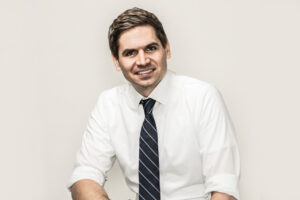
Thomas Cooper, PhD
Assistant Professor, Head of CooperLab
Laboratory: CooperLab
Email: tcooper@yorku.caThe CooperLab conducts fundamental and applied renewable energy research. With a current focus on solar thermal technology, our research spans the fields of thermal science, optics, and materials to develop new pathways and devices for transforming sunlight into useful forms, including electricity, heat, clean water, and renewable fuels. Our research also touches on complementary fields including energy storage, advanced thermal insulation materials, and advanced thermal characterization techniques.
Our three main research thrust areas are: solar concentrators; solar absorber materials; and solar thermal desalination devices. Through theoretical analysis, numerical simulation, and experimentation, we aim to advance the fundamental knowledge in these areas to strive towards more efficient and cost-effective solar thermal systems. Our contributions in these areas are underpinned by specialization in nonimaging optics, optical properties measurement, heat transfer, and thermodynamics of photothermal and thermochemical processes.
-
Microsystems and Instrumentation
Alidad Amirfazli, PhD, PEng, FCSME, FEIC
Professor
Research Areas: Thermofluid, Fluid Mechanics, Wetting & Capillarity, Icing, coating
Laboratory: Surface Engineering and Instrumentation Lab (SEiL)
Email: alidad2@yorku.caProf. Amirfazli’s group combines fluid mechanics and heat transfer concepts with physiochemical and thermodynamic principles to tackle many complex problems seen in aerospace, energy, and materials sectors. The group has produced exciting results in wetting behaviour of surfaces, drop adhesion and shedding, drop impact, icing, direct laser patterning of self assembled monolayers and super-hydrophobic surfaces. The work is well recognized internationally; active collaborations with various research groups around the world allows many students to spent time in top laboratories or interacted with researchers we host annually in our lab from Germany, Italy, Spain, China, France, Belgium, UK and Switzerland.

Nima Tabatabaei, PhD
Associate Professor
Laboratory: Hybrid Biomedical Optics Lab
Email: nima.tabatabaei@lassonde.yorku.caThe focus of HBO Lab is on the design and development of thermal and optical imaging technologies and devices with applications in medical diagnosis and screening. Optics-based medical devices are of particular interest to us due to their intrinsic ability of revealing malignancies in their early stages. The early diagnosis of diseases improves the effectiveness of treatments, promotes prevention rather than medical intervention, and is probably the only approach for us to win the war on cancer.
One of the major challenges in optical imaging of endogenous tissue contrast is the poor specificity due to background signals from the healthy tissue. The HBO Lab’s vision is to overcome this shortcoming by separating excitation and detection channels (i.e, Hybrid methods). In this scenario, crosstalk between the channels takes place by energy conversion at malignant sites that are sensitive to the excitation.
Pouya Rezai, PhD, P.Eng
Associate Professor & Chair
Research Areas: Microfluidics, Lab on a Chip, Point of Care Diagnostics, Point of Need Detection, Health and Safety Monitoring
Laboratory: Advanced Center for Micro-fluidic Technology and Engineering (ACµTE)
Email: prezai@yorku.ca
Phone: +1-4167362100-44703Dr. Pouya Rezai’s interdisciplinary research interest is in multi-phase flows within microfluidic and Lab-on-Chip (LoC) devices. At a fundamental level, it aims to understand the interactions between biological and physical nano- and micro-particles and various fluids in biomimetic microsystems. The generated knowledge and expertise are used at the applied level to develop point-of-care and LoC devices for disease studies and drug discovery, and point-of-need sensors for health-and-safety monitoring applications such as pathogen and pollutant detection in air, water, food, and/or human body fluids. See Dr. Rezai’s personal website for the list of his publications and other research outputs.
-
Robotics and Automation
Dan Zhang, PhD, P.Eng., FCAE, FEIC, FASME, FCSME, SMIEEE
Professor and Tier 1 York Research Chair
Research Areas: Robotics, Mechatronics, Control Systems, Manufacturing Systems, Parallel Robotic Machines
Email: dzhang99@yorku.caDr. Dan Zhang is a Professor and Tier 1 York Research Chair (YRC) in Advanced Robotics and Mechatronics and was a Canada Research Chair in Advanced Robotics and Automation. Dr. Zhang’s contributions to and leadership within the field of robotic and automation have been recognized with several prestigious awards, within his own university (Kaneff Professorship, Tier 1 YRC, Research Excellence Award), the Province of Ontario (Early Researcher Award), the professional societies (CAE Fellow, ASME Fellow, EIC Fellow and CSME Fellow), and federal funding agencies (Canada Research Chair in January 2009 and renewed in January 2014). His research includes: Synthesis and Optimization of Parallel and Hybrid Mechanisms; Generalized Parallel Mechanisms Research; Reconfigurable Robots; Innovation Design of Parallel Robots: Parallelization of Serial Robots; Micro/Nano Manipulation and MEMS Devices (e.g., Sensors); Rescue Robots; Smart Biomedical Instruments (e.g., Exoskeleton Robots and Rehabilitation Robotics); Robots for Multi-Media Environment using Artificial Intelligence and Big Data (e.g., Amphibious Robotics); Intelligent Reconfigurable Adaptive Landing Gear and Manipulator (Manipulander).
Read More -
Thermal Sciences and Energy
Alidad Amirfazli, PhD, PEng, FCSME, FEIC
Professor
Research Areas: Thermofluid, Fluid Mechanics, Wetting & Capillarity, Icing, coating
Laboratory: Surface Engineering and Instrumentation Lab (SEiL)
Email: alidad2@yorku.caProf. Amirfazli’s group combines fluid mechanics and heat transfer concepts with physicochemical and thermodynamic principles to tackle many complex problems seen in the aerospace, energy and materials sectors. The group has produced exciting results in wetting behaviour of surfaces, drop adhesion and shedding, drop impact, icing, direct laser patterning of self-assembled monolayers and super-hydrophobic surfaces. The work is well recognized internationally; active collaborations with various research groups around the world allow many students to spend time in top laboratories or interact with researchers we host annually in our lab from Germany, Italy, Spain, China, France, Belgium, UK and Switzerland.
Paul O’Brien, PhD
Associate Professor
Laboratory: Advanced Materials for Sustainable Energy Technologies Laboratory (AM-SET-LAB) Email: paul.obrien@lassonde.yorku.ca
The Advanced Materials for Sustainable Energy Technologies Laboratory (AM-SET-LAB) is currently focused on the design and development of spectrally selective, photothermal, and thermal energy storage materials that control and utilize solar energy and radiant thermal energy for the advancement of sustainability. Research areas include (1) thermal photonic materials designed to control the directionality and spectral distribution of the emissivity and absorptivity of thermal radiation with applications in solar thermal energy utilization and radiative day-time cooling, (2) windows that harvest radiant infrared radiation and (3) thermal energy storage materials that store sensible heat, latent heat, or the heat of adsorption to subsequently be used to provide building heating, cooling, or power generation.

Nima Tabatabaei, PhD
Associate Professor
Laboratory: Hybrid Biomedical Optics Lab
Email: nima.tabatabaei@lassonde.yorku.caThe focus of HBO Lab is on the design and development of thermal and optical imaging technologies and devices with applications in medical diagnosis and screening. Optics-based medical devices are of particular interest to us due to their intrinsic ability to reveal malignancies in their early stages. The early diagnosis of diseases improves the effectiveness of treatments, promotes prevention rather than medical intervention, and is probably the only approach for us to win the war on cancer.
One of the major challenges in optical imaging of endogenous tissue contrast is the poor specificity due to background signals from the healthy tissue. The HBO Lab’s vision is to overcome this shortcoming by separating excitation and detection channels (i.e, Hybrid methods). In this scenario, crosstalk between the channels takes place by energy conversion at malignant sites that are sensitive to excitation.

Thomas Cooper, PhD
Associate Professor, Head of CooperLab
Laboratory: CooperLab
Email: tcooper@yorku.caThe CooperLab conducts fundamental and applied renewable energy research. With a current focus on solar thermal technology, our research spans the fields of thermal science, optics, and materials to develop new pathways and devices for transforming sunlight into useful forms, including electricity, heat, clean water, and renewable fuels. Our research also touches on complementary fields including energy storage, advanced thermal insulation materials, and advanced thermal characterization techniques.
Our three main research thrust areas are: solar concentrators; solar absorber materials; and solar thermal desalination devices. Through theoretical analysis, numerical simulation, and experimentation, we aim to advance the fundamental knowledge in these areas to strive towards more efficient and cost-effective solar thermal systems. Our contributions in these areas are underpinned by specialization in nonimaging optics, optical properties measurement, heat transfer, and thermodynamics of photothermal and thermochemical processes.
Read More -
Fluid Mechanics
Alidad Amirfazli, PhD, PEng, FCSME, FEIC
Professor
Research Areas: Thermofluid, Fluid Mechanics, Wetting & Capillarity, Icing, coating
Laboratory: Surface Engineering and Instrumentation Lab (SEiL)
Email: alidad2@yorku.caProf. Amirfazli’s group combines fluid mechanics and heat transfer concepts with physiochemical and thermodynamic principles to tackle many complex problems seen in aerospace, energy, and materials sectors. The group has produced exciting results in wetting behaviour of surfaces, drop adhesion and shedding, drop impact, icing, direct laser patterning of self assembled monolayers and super-hydrophobic surfaces. The work is well recognized internationally; active collaborations with various research groups around the world allows many students to spent time in top laboratories or interacted with researchers we host annually in our lab from Germany, Italy, Spain, China, France, Belgium, UK and Switzerland.

Ronald Hanson, PhD
Associate Professor
Research Areas: Experimental fluid dynamics, turbulence, turbulent boundary layer, transition, flow control
Laboratory: https://rhanson.lab.yorku.ca/
Email: hansonre@yorku.caProf. Hanson’s research takes a primarily experimental approach to the study of flow physics. He established the Fluid Mechanics and Flow Control Research Laboratory with a cornerstone closed loop wind tunnel and towing tank facilities. His group is focused on wall-bounded and separated flow phenomena with relevance to aerospace and sport-based applications. This builds from parallel focus on flow dynamics and instabilities as precursor to their control, which forms a close nexus with development of technology (active/passive) to enable favorable alteration of boundary layers, wakes and turbulence. Another branch of his research relates to aerodynamic characteristics of airborne pollutant.
Read MorePouya Rezai, PhD, P.Eng
Associate Professor & Chair
Research Areas: Microfluidics, Lab on a Chip, Point of Care Diagnostics, Point of Need Detection, Health and Safety Monitoring
Laboratory: Advanced Center for Micro-fluidic Technology and Engineering (ACµTE)
Email: prezai@yorku.ca
Phone: +1-4167362100-44703Dr. Pouya Rezai’s interdisciplinary research interest is in multi-phase flows within microfluidic and Lab-on-Chip (LoC) devices. At a fundamental level, it aims to understand the interactions between biological and physical nano- and micro-particles and various fluids in biomimetic microsystems. The generated knowledge and expertise are used at the applied level to develop point-of-care and LoC devices for disease studies and drug discovery, and point-of-need sensors for health-and-safety monitoring applications such as pathogen and pollutant detection in air, water, food, and/or human body fluids. See Dr. Rezai’s personal website for the list of his publications and other research outputs.
